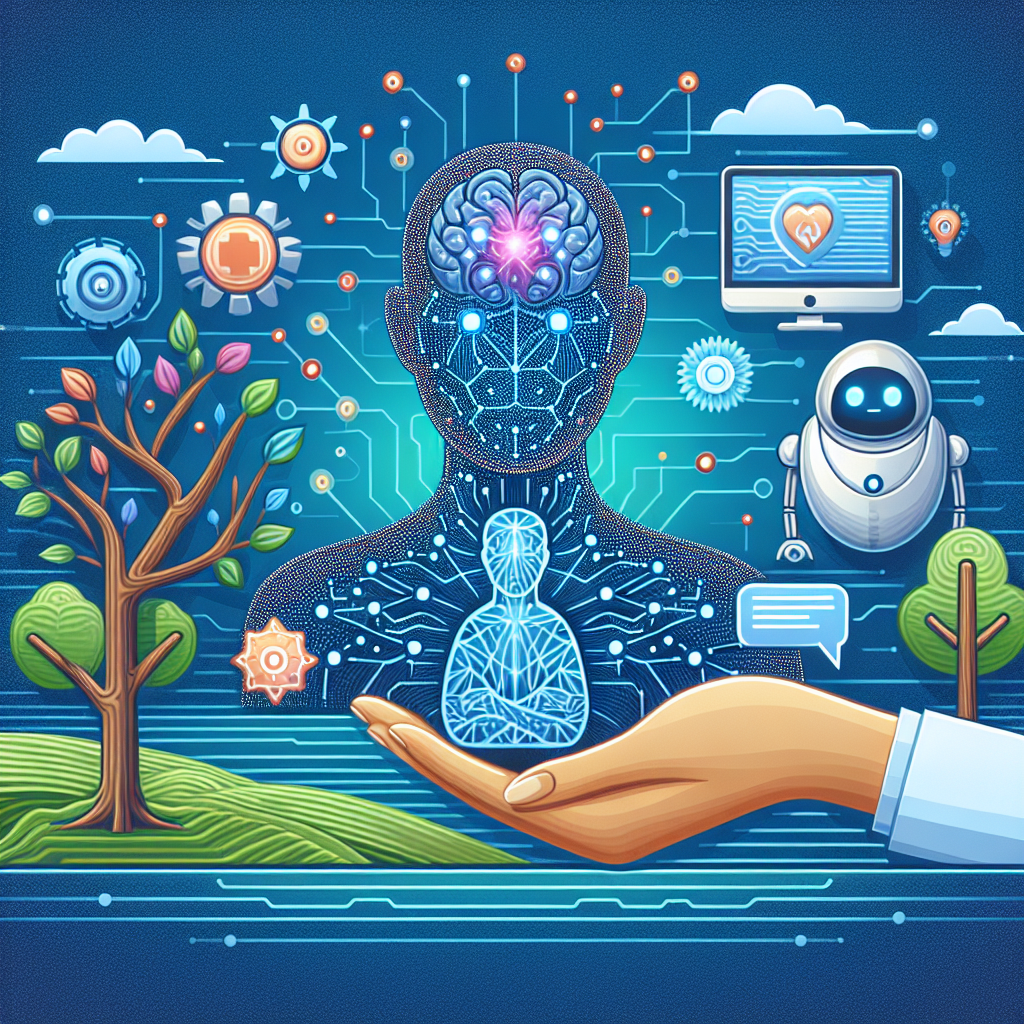In recent years, the field of artificial intelligence (AI) has made significant advancements in various industries, including healthcare. One area that has seen a rise in the use of AI technology is mental health and well-being. AI consulting for mental health and well-being involves the use of AI tools and algorithms to help individuals manage their mental health, improve their well-being, and access appropriate resources and support.
AI consulting for mental health and well-being can encompass a range of services and tools, including chatbots, virtual therapists, predictive analytics, and personalized treatment recommendations. These AI tools can provide real-time support, personalized interventions, and valuable insights into an individual’s mental health status.
One of the key benefits of AI consulting for mental health and well-being is the accessibility it offers. Many individuals may not have access to traditional mental health services due to various barriers, such as cost, stigma, or lack of providers in their area. AI tools can bridge this gap by providing immediate support and resources to individuals in need, regardless of their location or financial situation.
Another benefit of AI consulting for mental health and well-being is the ability to provide personalized interventions. AI algorithms can analyze data from individuals’ interactions with the tool to tailor recommendations and support to their specific needs and preferences. This personalized approach can help individuals feel more engaged and motivated to seek help and make positive changes in their mental health.
AI consulting for mental health and well-being can also help to reduce the burden on healthcare providers. With the growing demand for mental health services, many providers may be overwhelmed with the number of patients seeking care. AI tools can help to triage individuals, provide self-help resources, and offer support to individuals in need, freeing up healthcare providers to focus on more complex cases.
Despite the numerous benefits of AI consulting for mental health and well-being, there are also some challenges and concerns associated with its use. One of the main concerns is the potential for AI tools to replace human interaction and empathy. While AI tools can provide valuable support and resources, they should not be seen as a replacement for traditional mental health services that involve human connection and emotional support.
Another challenge is the issue of data privacy and security. AI tools collect and analyze sensitive data about individuals’ mental health, which raises concerns about how this data is stored, protected, and used. It is important for AI consulting providers to prioritize data privacy and security to ensure that individuals feel comfortable and confident in using these tools.
Additionally, there is a need for ongoing research and evaluation of AI consulting for mental health and well-being to ensure that these tools are effective and safe. As AI technology continues to evolve, it is crucial to assess its impact on individuals’ mental health outcomes and make adjustments as needed to improve the quality and effectiveness of these tools.
Overall, AI consulting for mental health and well-being has the potential to revolutionize the way individuals access and receive mental health support. By combining the power of AI technology with human empathy and expertise, individuals can receive personalized, accessible, and effective care to improve their mental health and well-being.
FAQs:
1. How does AI consulting for mental health and well-being work?
AI consulting for mental health and well-being involves the use of AI tools and algorithms to provide individuals with real-time support, personalized interventions, and valuable insights into their mental health status. These tools can range from chatbots and virtual therapists to predictive analytics and personalized treatment recommendations.
2. Is AI consulting for mental health and well-being effective?
While AI consulting for mental health and well-being has shown promise in improving access to care and providing personalized interventions, more research and evaluation are needed to assess its long-term effectiveness. It is important for providers to continue to monitor and refine these tools to ensure that they are safe, effective, and beneficial for individuals seeking mental health support.
3. Are AI tools a replacement for traditional mental health services?
AI tools should not be seen as a replacement for traditional mental health services that involve human connection and empathy. While AI tools can provide valuable support and resources, they should be used as a complement to traditional care to enhance individuals’ mental health outcomes and well-being.
4. How is data privacy and security addressed in AI consulting for mental health and well-being?
Data privacy and security are critical considerations in AI consulting for mental health and well-being. Providers should prioritize protecting individuals’ sensitive data and ensuring that it is stored, used, and shared securely. It is important for individuals to feel confident and comfortable in using these tools and sharing their data to receive the support they need.
5. What are the future trends in AI consulting for mental health and well-being?
As AI technology continues to evolve, we can expect to see advancements in personalized interventions, predictive analytics, and remote monitoring tools for mental health and well-being. Providers will likely continue to innovate and refine these tools to improve access to care, enhance outcomes, and address the growing demand for mental health services.

